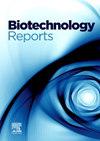Characterization of host cell proteins in the downstream process of plant-Based biologics using LC-MS profiling
Q1 Immunology and Microbiology
引用次数: 0
Abstract
Host cell proteins (HCPs) are process-related impurities found in biopharmaceutical products that can impair their safety and efficacy. While ELISA has traditionally been employed to quantify HCPs, LC-MS emerges as a powerful alternative for precise identification of individual HCPs. In this study, we used LC-MS for profiling HCPs from Nicotiana benthamiana-derived biopharmaceuticals. Our approach involved rigorous false discovery rate control to ensure data integrity and reliability. Comprehensive analysis revealed a systematic reduction of HCPs following purification, demonstrating the efficiency of purification processes in removing non-essential proteins. Furthermore, LC-MS enabled the identification of potential contaminants, refining purification strategies and improving product purity and integrity. Our findings highlight the potential of LC-MS as an analytical tool for HCPs analysis in biopharmaceutical development and manufacturing. By providing detailed insights into HCPs profiles and contaminants, LC-MS facilitates informed decision-making in downstream processing steps, benefiting product quality, patient safety, and the biopharmaceutical sector.
利用 LC-MS 图谱分析植物生物制剂下游过程中宿主细胞蛋白质的特征
宿主细胞蛋白(HCPs)是生物制药产品中发现的与加工过程有关的杂质,会损害产品的安全性和有效性。ELISA 传统上用于定量 HCPs,而 LC-MS 则成为精确鉴定单个 HCPs 的有力替代方法。在本研究中,我们使用 LC-MS 分析了从烟草中提取的生物制药中的 HCPs。我们的方法包括严格的误发现率控制,以确保数据的完整性和可靠性。综合分析表明,纯化后 HCPs 系统性减少,这表明纯化过程能有效去除非必要蛋白。此外,LC-MS 还能识别潜在的污染物,改进纯化策略,提高产品的纯度和完整性。我们的研究结果凸显了 LC-MS 作为生物制药开发和生产中 HCPs 分析工具的潜力。通过详细了解 HCPs 的特征和污染物,LC-MS 可以帮助下游加工步骤做出明智的决策,有利于产品质量、患者安全和生物制药行业的发展。
本文章由计算机程序翻译,如有差异,请以英文原文为准。
求助全文
约1分钟内获得全文
求助全文
来源期刊

Biotechnology Reports
Immunology and Microbiology-Applied Microbiology and Biotechnology
CiteScore
15.80
自引率
0.00%
发文量
79
审稿时长
55 days
期刊介绍:
Biotechnology Reports covers all aspects of Biotechnology particularly those reports that are useful and informative and that will be of value to other researchers in related fields. Biotechnology Reports loves ground breaking science, but will also accept good science that can be of use to the biotechnology community. The journal maintains a high quality peer review where submissions are considered on the basis of scientific validity and technical quality. Acceptable paper types are research articles (short or full communications), methods, mini-reviews, and commentaries in the following areas: Healthcare and pharmaceutical biotechnology Agricultural and food biotechnology Environmental biotechnology Molecular biology, cell and tissue engineering and synthetic biology Industrial biotechnology, biofuels and bioenergy Nanobiotechnology Bioinformatics & systems biology New processes and products in biotechnology, bioprocess engineering.
 求助内容:
求助内容: 应助结果提醒方式:
应助结果提醒方式:


